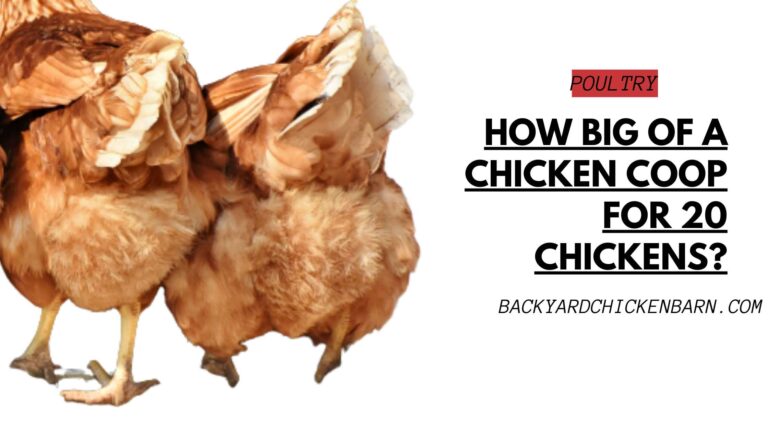Washington State Chicken Laws: A Complete Guide
Raising backyard chickens in Washington State has become a popular way to enjoy fresh eggs, reduce food waste, and live more sustainably. Whether you’re in Seattle, Spokane, or a rural part of the state, there’s a good chance you can raise chickens—but only if you follow the rules.
This guide breaks down Washington State chicken laws by city and county, including what’s allowed, where permits are required, and how to keep your flock legal and neighbor-friendly.
Are Chickens Legal in Washington State?
Yes, chickens are legal in most parts of Washington State—but local laws, zoning codes, and neighborhood rules will determine what’s allowed. The state doesn’t restrict backyard poultry, but cities, counties, and HOAs often do.
What Typically Determines Chicken Laws:
-
Residential vs. agricultural zoning
-
Lot size and property setbacks
-
Whether you live in city limits or unincorporated areas
-
Number of chickens allowed
-
Rooster regulations
-
Permit or registration requirements
-
Nuisance and sanitation ordinances
Chicken Laws by City in Washington State
Let’s take a look at the chicken laws in some of Washington’s major cities and counties.
1. Seattle
-
Allowed: Yes
-
Limit: Up to 8 chickens per residential lot
-
Roosters: Not allowed
-
Permit: Not required for small flocks
-
Coop Rules:
-
Coop must be at least 10 feet from neighboring homes
-
Chickens must be confined to the backyard
-
Sanitary conditions must be maintained
-
Seattle is one of the most chicken-friendly cities in the state, making urban farming easier with clear guidelines.
2. Spokane
-
Allowed: Yes, with limitations
-
Limit: Up to 3 chickens on lots under 10,000 sq. ft.
-
Roosters: Prohibited
-
Permit: Not required for small flocks
-
Setback Requirements:
-
Coop must be at least 10 feet from property lines
-
Chickens must be contained and not create nuisance conditions
-
3. Tacoma
-
Allowed: Yes
-
Limit: Up to 6 hens per lot
-
Roosters: Not allowed
-
Permit: Not required
-
Other Notes:
-
Chickens must stay in the backyard
-
Coops must be maintained and cleaned regularly
-
Selling eggs from your home is not allowed without special licenses
-
4. Olympia
-
Allowed: Yes
-
Limit: Up to 6 hens per residential property
-
Roosters: Banned in urban areas
-
Permit: Not required
-
Additional Rules:
-
Chickens must be kept in a secure, enclosed coop
-
No commercial use unless zoned for it
-
5. Bellevue
-
Allowed: Yes
-
Limit: Depends on lot size
-
Up to 3 hens on lots under 10,000 sq. ft.
-
More allowed for larger lots
-
-
Roosters: Not permitted
-
Permit: Not required for personal flocks
-
Coop Requirements:
-
Must meet accessory structure code
-
Located in backyard only
-
6. Vancouver (WA)
-
Allowed: Yes
-
Limit: Up to 4 hens
-
Roosters: Not allowed
-
Permit: Not required for small flocks
-
Other Notes:
-
Chickens must stay in the backyard
-
Coop must be predator-proof and clean
-
Chicken Laws in Unincorporated and Rural Areas
If you live outside city limits in unincorporated areas, especially in counties like King, Pierce, Snohomish, or Thurston, you likely have more freedom to keep chickens.
Rural Zoning Benefits:
-
Often no limits on chicken numbers
-
Roosters usually allowed
-
No permit required in most agricultural zones
-
Selling eggs/meat may be allowed with proper licenses
-
Larger coops and free-range setups are permitted
Still, nuisance complaints (noise, odor, pest attraction) can result in enforcement actions. It’s best to follow basic sanitation and distance guidelines even where rules are lax.
Common Chicken Laws Across Washington Cities
While details vary, most municipalities follow a similar framework for backyard chicken laws:
Standard Requirements:
-
Roosters prohibited in residential zones
-
4 to 8 hens allowed, depending on lot size and city
-
Chickens must be confined to a coop or enclosed run
-
Coops must be clean and rodent-proof
-
Minimum setbacks from property lines or homes (typically 10–25 feet)
-
No selling eggs or meat without additional permits
-
No slaughtering on residential properties in city limits
Do You Need a Permit to Raise Chickens in Washington?
Usually not—most cities in Washington don’t require a permit to keep a small number of chickens for personal use. However, you may need a permit if you:
-
Plan to raise chickens for commercial use
-
Live on property with tight zoning restrictions
-
Want to build a large coop structure
-
Live in a subdivision or HOA that enforces stricter rules
For larger flocks or agricultural operations, you may need registration through the Washington State Department of Agriculture (WSDA).
HOA Rules and Restrictions
Even if chickens are legal in your city or county, your Homeowners Association (HOA) can restrict or ban them.
HOA Restrictions May Include:
-
Complete bans on poultry
-
Limits on coop size or visibility
-
Noise/odor clauses
-
Approval required before setting up a coop
Always check your HOA’s CC&Rs (Covenants, Conditions, and Restrictions) before bringing home your hens. Violating HOA rules can result in fines, legal action, or forced removal.
What Happens If You Break Chicken Laws?
Violating chicken laws in Washington can lead to:
-
Fines (up to $250–$1,000 depending on the city)
-
Complaints from neighbors
-
Animal control citations
-
Forced removal of chickens
-
Revocation of permits, if applicable
Avoid problems by understanding your local ordinances, following setback and sanitation rules, and keeping roosters out of urban areas.
Best Chicken Breeds for Washington’s Climate
Washington’s climate is mild but rainy, so you’ll want cold-hardy, moisture-resistant breeds that thrive in cool, damp conditions.
Top Chicken Breeds for Washington:
-
Australorps – Hardy and great egg producers
-
Orpingtons – Dual-purpose, friendly, and good in cold
-
Barred Rocks – Reliable layers, weather-resistant
-
Rhode Island Reds – Tough birds that tolerate wet weather
-
Easter Eggers – Fun egg colors and adaptable
Make sure coops are well-ventilated, elevated off the ground, and have dry bedding to prevent mold or disease.
Can You Sell Eggs or Meat in Washington?
Yes—but you’ll need to follow WSDA regulations for selling poultry products.
Egg Sales:
-
Must register as an egg handler with WSDA
-
Label cartons properly (name, date, handling info)
-
Refrigerate eggs at 45°F or lower
-
No washing with unapproved chemicals
Meat Sales:
-
Requires processing in a WSDA-licensed facility
-
Home slaughter for commercial sale is not legal
-
Farmers markets require compliance with health and safety laws
If you’re keeping chickens for personal use only, you don’t need special licenses.
Conclusion
Washington State is a great place to raise backyard chickens—as long as you follow local laws. Cities like Seattle, Spokane, and Tacoma allow small flocks, but usually ban roosters and require you to keep coops clean, contained, and neighbor-friendly.
If you’re in a rural area, you’ll likely have more flexibility and can even sell eggs or raise larger flocks with minimal oversight. Wherever you live, know your city’s zoning, talk to your neighbors, and maintain a clean, humane setup.
Thinking about starting your flock? Check your local ordinances, choose hardy hens, and build a cozy, dry coop—your egg-laying companions will thank you.


